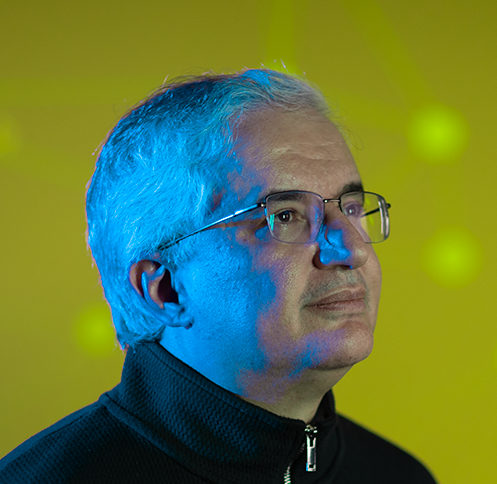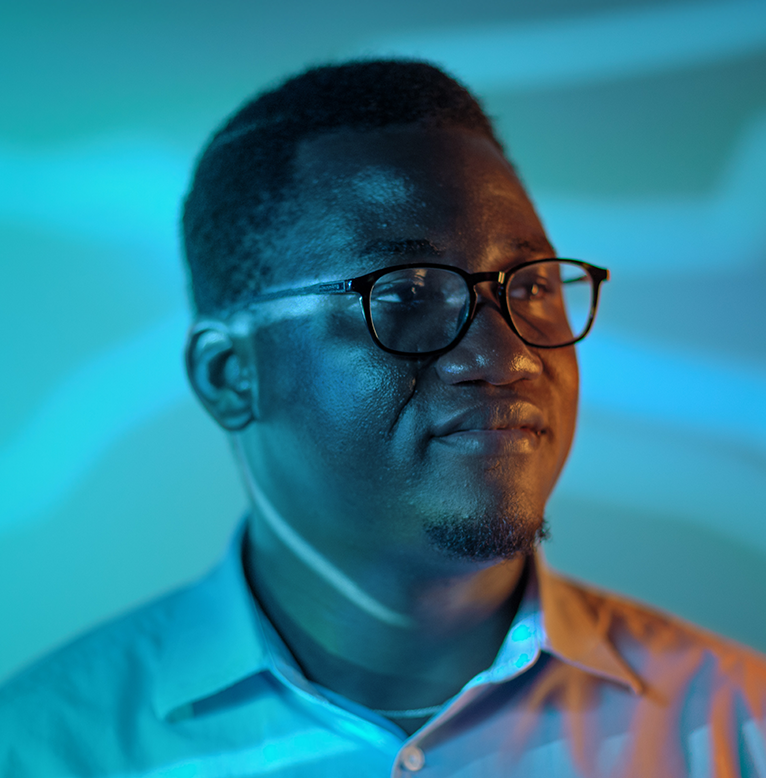RAQUEL PEIXOTO
on a
mission
to protect coral reefs and the planet.
From “Little Fish” to global reef guardian: Raquel Peixoto pioneers coral probiotics
Raquel Peixoto
- Professor of Marine Science
- Chair, Marine Science Program
- Biological and Environmental Science and Engineering Division
“Little fish” is what Professor Raquel Peixoto’s surname means in English — a fitting moniker for a scientist whose pioneering probiotics research could help safeguard coral reefs that sustain countless marine species.
Born in Brazil, where she surfed and dived among rich marine ecosystems, Peixoto earned her bachelor’s, master’s, and Ph.D. from the Federal University of Rio de Janeiro before charting an unexpected path to Saudi Arabia. Despite her love for the sea, she never imagined becoming renowned for her work with coral reefs, today serving as the chair of the Marine Science Program at King Abdullah University of Science and Technology (KAUST).
We’re creating unique, field-ready technologies that are already making a difference. It’s not theoretical. These tools are in place. They work.”
Raquel Peixoto
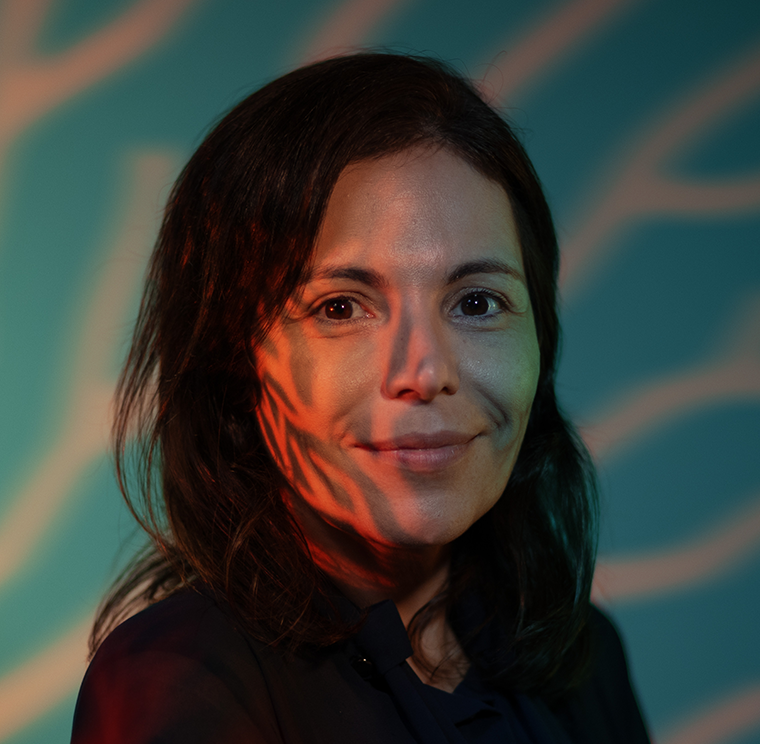
“I’m a microbial ecologist,” Peixoto says. “I started with plants and soil, using probiotics for restoration. Then I was asked to help with mangrove restoration near a coral reef. I realized the knowledge could translate. So, I shifted to coral probiotics. It felt like the right thing to do with my skillset.”
For Peixoto, her voyage to KAUST began with invitations from colleagues, including Professor Manuel Aranda, Marine Science, who encouraged her to visit. When she finally did, Peixoto was drawn, above all, by the Red Sea’s unique environment, which she described as truly special.
“I was also attracted to the diversity of expertise that I found here. That was very beneficial for the development of my work.”
Peixoto joined KAUST in 2020. Since then, she has balanced fieldwork with global leadership roles. She works alongside her students and researchers, mentoring through shared effort rather than at a distance.
“Leadership is about being able to guide but also learn and do things together,” she says keenly. “To develop what we’re developing means I can’t be detached. Really, we act as a team. That’s how I inspire, and how I get inspired.”
Building better coral gut biomes
Every living organism relies on microbes, and corals are no exception. About 30% of marine life depends on reefs for food, shelter, and breeding grounds. If reefs die, ecosystems collapse. When conditions worsen, Peixoto says, harmful microbes can overtake helpful ones.
At KAUST, Peixoto’s team is working to keep beneficial microbes in place to protect corals and maintain ocean balance. She explains that bleaching produces reactive oxygen species that can damage proteins, DNA, and cell membranes.
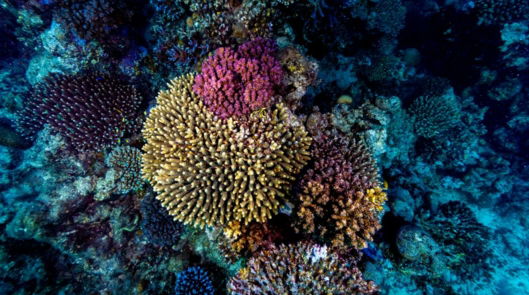
“Probiotic mechanisms can help degrade the toxic compounds that are overproduced during coral stress,” she says. “When temperatures rise or stress hits, we apply these beneficial microbes so corals can defend themselves. It’s about prevention and resilience. Healthy corals mean a healthier ocean, which ultimately affects the entire planet.”
Tools in action
Probiotics act as a temporary “medicine,” Peixoto explains, applied during heat stress to help reefs survive and recover until climate change itself is addressed. Deployment tools include scalable, affordable, pilot-tested underwater irrigation systems and slow-release probiotic patches codeveloped with KAUST engineers and materials scientists. Her team’s innovations are expanding beyond corals.
“We were approached to develop the same tools for seagrass restoration. We’re working with government on similar approaches for turtles threatened by microbial changes. All the things we’re developing, not only the knowledge but the tools, can be implemented for other marine organisms and even terrestrial organisms.”
Peixoto’s goal is to scale coral probiotics for real-world use. At KAUST, her team has selected microbes, tested them, validated them, and conducted risk assessments. “Now we’re scaling based on years of KAUST-collected data. Not only do the corals benefit, but the broader reef ecosystem thrives. Crucially, we’ve developed methods to deploy this at scale, which is where we’re headed next.”
Global impact
Corals face unprecedented threats, but hope is on the horizon, thanks to KAUST. For Peixoto, the University is more than a workplace. The diversity of expertise and the unique environment of the Red Sea convinced her to stay, and she now sees KAUST as a catalyst for breakthroughs that can ripple far beyond Saudi Arabia.
“I fell in love with KAUST when I came, first because of the Red Sea and how special it is, and also because of everything I discovered here.”
Peixoto’s research is now moving from concept to practice, enabling large-scale deployment alongside stakeholders in the KAUST Coral Restoration Initiative (KCRI), the world’s largest of its kind. “We’re creating unique, field-ready technologies that are already making a difference. It’s not theoretical. These tools are in place. They work. They’re built by people combining very different knowledge sets in a meaningful way.”
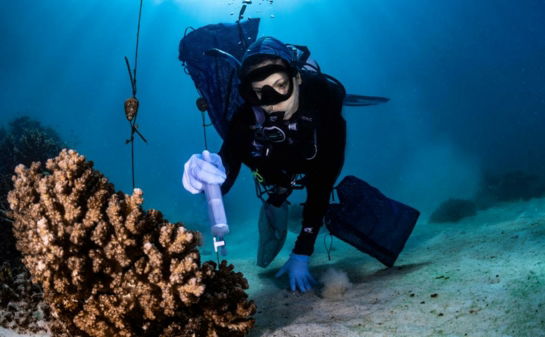
KAUST’s diverse mix of perspectives, expertise, and cultural knowledge creates the ideal environment for tackling pressing challenges such as coral reef loss, she says, supporting creativity and innovation. Drawing on her lifelong love of Brazil’s marine ecosystems, Peixoto sees her Red Sea research providing insights, tools, and probiotic protocols adaptable worldwide, giving reefs, including those in the South Atlantic, a better chance to endure.
“All of the things we’re developing at KAUST will benefit all the reefs of the world, including Brazil’s,” she says, her eyes brightening. “I’m on a mission to protect coral reefs and the planet.”
Learn more about KAUST and our mission-driven research
KAUST shall be a beacon for peace, hope and reconciliation, and shall serve the people of the Kingdom and the world.
King Abdullah bin Abdulaziz Al Saud, 1924 – 2015
Email: global.pr@kaust.edu.sa
Mailing address:
4700 King Abdullah University of Science and Technology
Thuwal 23955-6900
Kingdom of Saudi Arabia
FOLLOW US
© 2025 King Abdullah University of Science and Technology. All rights reserved.


